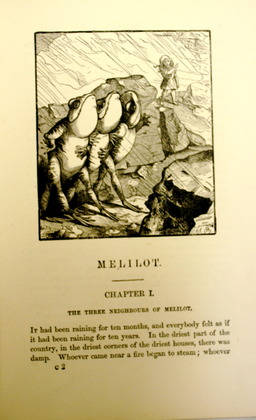Christianity and Moral Didacticism
Morley was a vocal proponent of Christian Socialism and the attendant Cooperative movement, committed to the ideal of social amelioration through the Christian faith. The fairy tale in which his didactic vision of change is most evident is ‘Melilot’; essentially a tale of redemption, the spiritually orphaned heroine is converted into a missionary figure after overcoming trials of morality and faith. Her charitable treatment of the aesthetically hideous frog-men, and sincere regret that she has ‘no supper to offer’ them leads her prayers to be answered with gifts of bread and milk ‘from the good angels’. Morley, therefore, presents charity and hospitality as overtly Christian traits, and ones that are deservedly rewarded. Furthermore, after saving and uniting with Sir Crucifer, Melilot descends from the ‘Eden’ of her home to the battlefield to aid in the wounded soldiers’ salvation, and ‘to spread [her] message and social good works’. By abandoning the fortune in jewels she had buried in the corner of the hut, and instead devoting herself to the cause of the less fortunate, Melilot is the stock figure of a Christian socialist; in the typical fairy tale narrative wealth is the protagonists reward for good deeds, whereas in Morley’s tale the heroine overcomes capitalist greed to enter into a sanctified life of Christian service which is its own reward.










